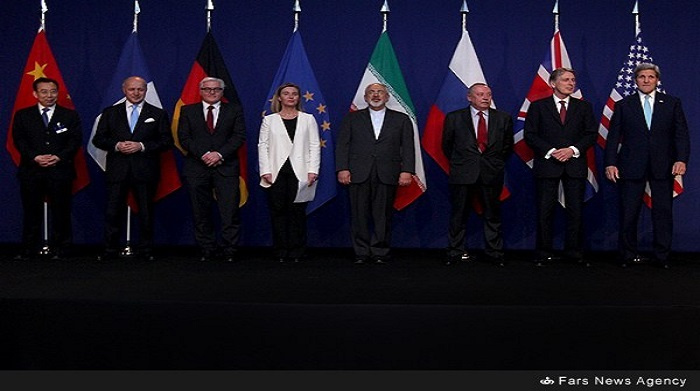Historic Breakthrough in Nuclear Talks

After arduous negotiations that extended beyond their self-imposed deadline, Iran and the world powers were finally able to "find the solutions" and declare a historic agreement on a common framework for a final nuclear agreement -- to be finalized by the July, 2015 deadline.
By all accounts, this is a "win-win" scenario that simultaneously satisfies the concerns and interests of both sides, much to the chagrin of Israel and its supporters in Washington and other Western capitals, who will likely do all they can in order to sabotage the significant progress. But, the train of diplomacy has already reached a crucial mid-point destination and the process is on track for a final comprehensive agreement that will end the Iran nuclear crisis and bring a sigh of relief to the international community.
Per the "joint statement" read by Iran's foreign minister and European Union's foreign policy representative Federica Mogherini, a "decisive step" forward has been achieved in the form of the common framework for the final deal, which includes the following: Iran's enrichment activities will continue at Natanz, albeit under certain restrictions, Fordo will be converted to a physics and technology center producing radio-isotopes for medical and other civilian purposes, a joint international venture will re-design the heavy water reactor and Iran promises not to set up a reprocessing plant for Plutonium, Iran will agree to the implementation of the IAEA modified Code 3.1, the IAEA will be allowed unannounced inspections, and Iran will take part in the international ventures in the field of nuclear technology. Furthermore, US and EU agree to lift all the nuclear-related sanctions pursuant to IAEA verifications, and a new UN Security Council resolution will terminate all the nuclear-related UN sanctions.
From Iran's standpoint, this is a historic achievement that protects its NPT nuclear rights and releases the country from the heavy burden of international sanctions that have hampered Iran's economy. A solid victory for Iran's diplomacy, the achievements in Lusanne will bolster Iran's standing in the region and in the international community, and will be a major plus for regional cooperation.
Simultaneously, this agreement will spur the efforts toward convening a UN-sponsored summit on a nuclear weapons-free zone in the Middle East, which has been cancelled under the US pressure in the past and yet is now a prime candidate for attention, in light of the upcoming 2015 NPT Review Conference at the UN headquarter in May.
Assuming that the parties will abide by their commitment reflected in the joint statement, the path ahead for drafting the final agreement will be comparatively smooth, as the lion share of leg work on the difficult technical details have already been done, thanks to the tireless and heroic efforts of Iran's nuclear negotiation team who never wavered from the principle of "negotiating with dignity."

